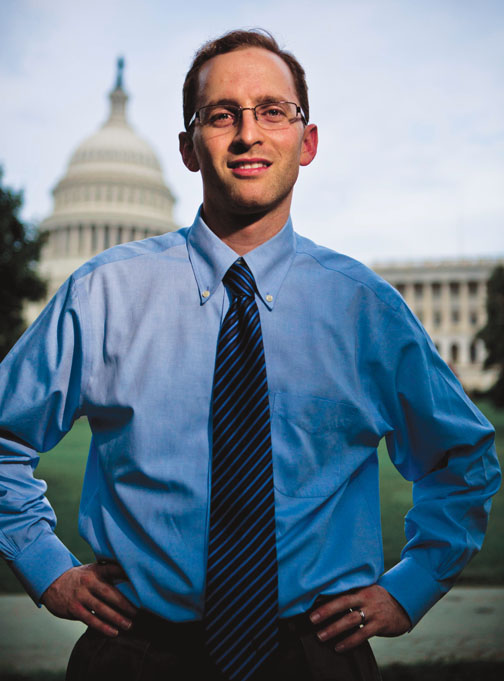Benjamin Sommers ’00, on the Affordable Care Act
Though many politicians are calling for a repeal of the Affordable Care Act (ACA), the June ruling by the Supreme Court that the law is constitutional has made others focus on implementing its provisions. Benjamin Sommers ’00, a physician and an assistant professor at the Harvard School of Public Health, just completed a yearlong assignment studying these issues in the planning office of the U.S. Department of Health and Human Services. He discussed the ACA, its effect on Medicaid, and the road forward.
Some Republican governors have announced that their states will not participate in the ACA’s expansion of Medicaid. Why?
Some of it may be politically motivated, but there are also concerns about the impact Medicaid expansion will have on state budgets. The ACA provides that the federal government will pay 100 percent of the cost of all newly eligible Medicaid participants for the first three years, and 90 percent beyond that, which is much more than Medicaid traditionally pays. States should also take into account the public-health benefits of expanding coverage. We recently did a study in three states — New York, Arizona, and Maine — looking at what happened when states expanded their Medicaid eligibility. We found that people in those states had better access to care, enjoyed better health, and death rates declined.
Is there a financial impact for states expanding Medicaid ?
All states have people who are eligible for Medicaid under current law but either do not participate or have stopped participating. This is often because they are unaware of the program or because it is too onerous to enroll or re-enroll. Starting in 2014, every American will be eligible for some form of coverage under the ACA, and there is some concern that it will encourage a lot of people to sign up who might have signed up before but didn’t. The federal government will only pay the traditional rate for those people, meaning that states will have to pick up about 43 percent of those costs. We call that the woodwork effect or the welcome-mat effect. There will be a financial impact on states, but you are trading that against getting people covered who otherwise would not be covered.
You have described a “churning” problem as people gain and lose Medicaid eligibility. Can you explain?
This problem has existed for a while in Medicaid. People’s income fluctuates, often from month to month, as they work an extra shift or things slow down. If their income goes up, they can lose eligibility, only to become eligible again a few months later. The ACA tries to make the transition less abrupt. If your income rises above the eligibility threshold, you will have the option to purchase coverage through the new health exchanges. This is one of the big policy challenges, because people may go back and forth.
You are a primary-care physician. How will the ACA affect you?
I work at a Harvard-affiliated community health center and see patients. By expanding coverage to so many people who are uninsured and improving the quality of coverage for people who may already have rather flimsy private coverage, we are guaranteeing that our patients are going to be able to get the care they need and have it paid for. Everyone who goes into medicine does it because they want to help patients. And when patients can’t afford the treatment you are recommending or can’t get the tests they need, it’s incredibly disheartening for the doctor.
There have been predictions that the ACA will exacerbate a shortage of primary-care physicians. Will it?
This is an issue that policymakers have been looking at for a while. We don’t have enough people going into primary care now. We need more of them, with or without the ACA. The ACA could exacerbate that problem because you’re going to have millions of people getting health insurance who didn’t have it before, but the law takes several steps to remedy the shortage by putting more funding into paying primary-care physicians through Medicare and Medicaid and focusing on best [health] outcomes.
— Interview conducted and edited by Mark F. Bernstein ’83













1 Response
Gordon B. Sherard Jr. ’61
10 Years AgoThe quest for an answer
Re A Moment With … Benjamin Sommers ’00 (Sept. 19), it’s a pity that the questioner did not push harder on the last question, about whether the Affordable Care Act will exacerbate a shortage of primary-care physicians. The answer is a bit like the movie The Best Exotic Marigold Hotel: “If it is not yet right, that is because it is not yet the end.”